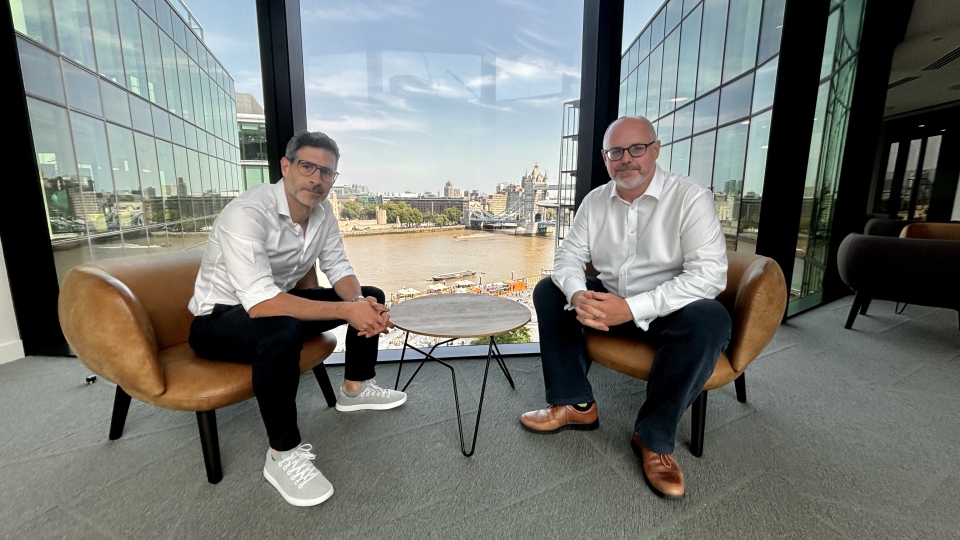
As UK-based IT MSP Annodata embarked on a new chapter under Kyocera Group in 2016, the company is keenly focused on a strategy that emphasizes both “ambitious regional and global expansion”, according to CIO Andrew Smith (pictured).
Central to this strategy is a series of mid to long-term acquisitions, aimed at enhancing capabilities and scaling up operations to effectively meet regional demands.
“We recognise that the need to change at pace is and continues to be present and we seek to balance this with growth of individuals coupled with strategic acquisitions to fast track innovation at the front end for our customers,” says Smith.
“Business problems are changing, and the pace of the market is forever increasing and whilst global corporates offer security we recognise we must be agile locally to remain relevant to servicing our customers.”
Annodata’s strategy
This forward-thinking approach and the potential for further expansion were key factors that attracted Kyocera, leading to its acquisition of Annodata in December 2016. Before joining Kyocera, Annodata, established in 1988 by the Harman brothers as a Canon dealer, had already fine-tuned its capabilities to align with the changing market and customer demands. The company aspired to be the “partner of choice" in print, Unified Communications, and IT sectors.
Post-acquisition, Annodata's approach evolved under Kyocera's global umbrella. "The global business has a strong strategic strategy to grow in core business areas like print but is also moving into new markets, such as production print and 'business solutions’,” explains Smith. “Business Solutions for Kyocera means a number of things but predominantly solutions focused around ‘Content Services’ and ‘Information Technology’.”
Kyocera has been developing its strategy by buying IP in Document Management, Data, Workflow, AI, Robotics etc. to strengthen and support how customer use and maximise data around their organisation. “The group support our strategy with growth in IT particularly in Managed Services and Professional Services knowing that there is a strong link between the skills, trust and requirements of the customer.”
Since becoming a part of Kyocera, Annodata has concentrated on organic acquisitions and growth within the UK. “Organic acquisition is not in the simplest terms just trying to grow our business but also acquiring talent either individually or in groups to ensure that our capabilities grow in line with our strategy,” Smith says.
An example of this strategy is Annodata's recent foray into cybersecurity. “Approximately two years ago we embarked on creating a cybersecurity business unit within the business and with this strategy we quickly acquired a package of talent to allow us to move forward. This acquisition of sorts was 100% focused on capability to enable growth of where we believe the market is and what are customers are asking for.”
Balancing risk with reward
Building on this strategic approach, Annodata's acquisition efforts have been particularly focused on “scaling internationally”, Smith asserts, ensuring that each new addition aligns seamlessly with the company's overarching goals and market expansion plans. However, conducting comprehensive due diligence to evaluate the quality, risks, and opportunities of a target company, ensuring it aligns with Annodata’s strategy and capabilities, is imperative, he explains.
With Kyocera's backing, Annodata has adopted the Amoeba management model, promoting autonomy and collaboration among its acquisitions. “This approach allows acquisitions to have autonomy in their region and sector to continue their growth with the support of the Kyocera group whilst also promoting synergies and collaboration. The thought process behind this path is to create empowerment of individuals, have management by all and fundamentally do the right thing by the human being.
“With any acquisition there is a period of understanding and alignment which enables broader buy in and where required the investment. However, with any investment the Kyocera approach is to fully understand, consider, align before investment to ensure any results are maximised.”
Annodata then adopts Kyocera’s PMI (Post Merger Integration) process, concentrating on integrating any acquisition into the group. “As part of this process there is of course the corporate controls and governance that play a role in the process to ensure the business risk is reduced and the correct elements are in place,” Smith explains.
“Of equal important is the introduction of the Kyocera philosophy through, training, seminars, visits etc. so all members can fully understand how and what the Kyocera philosophy is and how it contributes to shaping the overall company culture. We learn very early on Success=AttitudexEffortxAbility.”
Recruitment and ‘cultural fit’ difficulties
However, Smith acknowledges that the challenges in navigating acquisitions and investments are not straightforward, similar to the hurdles in recruitment. “Our biggest challenge is twofold,” he notes. The first is to "find the right candidate who aligns with the skills and capability we need, without too many distractions." The second obstacle is ensuring "the right candidate fits our company culture and future strategy."
To address these, Annodata takes a unique approach to acquisition and investment. “We seek to create reciprocal relationships in the market that allow us to understand partners and companies we work with. By doing so we can come together as true partners and understand their goals and how they may align with ours. This is our approach.
“We do not engage in bidding or public auctions of business where we cannot understand the people behind the name. Alongside this we share our philosophy and culture with all – internally, customers, partners alike. Through doing so all are aware of our beliefs and how we operate to enable a greater level of understanding should any conversations progress.”
Customer experience & value
Smith concludes by underscoring the importance of customer experience and value, especially in the context of a competitive landscape marked by constant emergence of new companies and startups.
In such an environment, he asserts, being “DIFFERENT for the RIGHT reasons is crucial.”
He added: "Despite changes from COVID and world events, our human need for connection and relationships persists. Capability is essential, but showing clear value to customers with personalised experiences is paramount."



